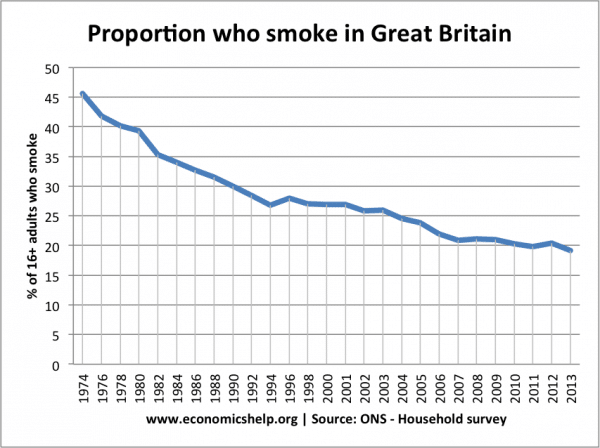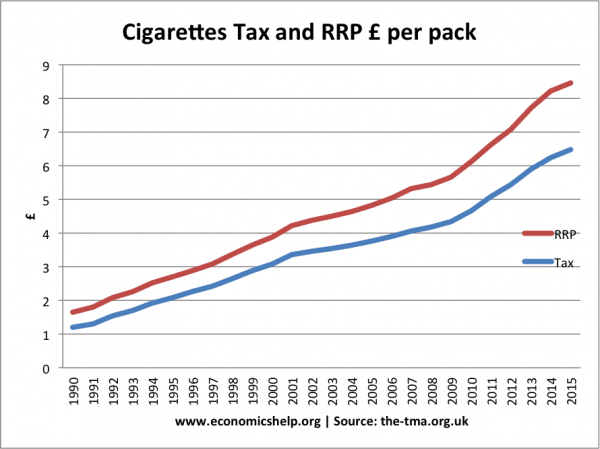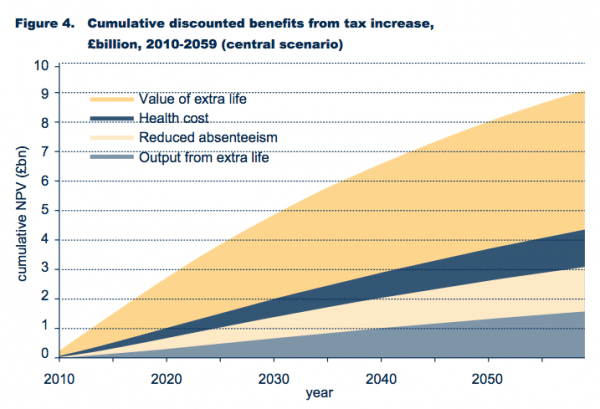In the UK, smoking rates have fallen significantly in the past 40 years. A combination of factors have led to declining smoking rates.
- Higher tax
- Health campaigns warning about the dangers of smoking.
- Regulations to ban smoking in many public areas, making smoking less attractive.
- Changing social attitudes and decline in the fashionability of smoking.
- Campaigns and new products to offer help people to give up smoking.

It is hard to separate the causes in why smoking rates have fallen. But the tax rates on smoking have played a significant role in reducing the demand for smoking.
Isn’t demand for cigarettes inelastic?
Tobacco makes a good example of a price inelastic good. It is addictive and there are no close substitutes – therefore, we would expect a higher price leads to cause a smaller percentage fall in demand. However, we should make a distinction between elasticity of demand in the short run and elasticity of demand in the long run. A smoker is unlikely to change his habits because of a 10% rise in prices. However, if there is a persistent increases in price, it may be a motivating factor in causing him to stop smoking – but, this could take a considerable time. But, although demand may be very inelastic in the short-term, in the long-term, it is likely to become more price sensitive.
The price of cigarettes in the UK

In the UK, tax accounts for 77% of the price. Tobacco tax has increased significantly more than the rate of inflation.
Tobacco duties give the government an estimated £10 billion in tax revenue in 2014/15. (Tax revenue sources)
Social benefits of tobacco tax
This report by ASH suggests that tobacco tax can lead to a significant increase in welfare – lower smoking rates lead to improved life expectancy and less time lost to absenteeism.

Related pages

bigger tax rates wont do. theyve done that in the other countries and cigarette smoking still hasnt reduced. they will have to ban it like drugs if they want to stop people from dying from cigarette tar.
This is an interesting idea john, however I beg to differ as it can be seen that this may result in the creation of a black market, such as with drugs. At least if they are supported by the government they can be somewhat regulated, otherwise they could be more harmful to consumers as they would not know what other potentially more harmful chemicals may be in the cigarettes.
Compare the harm from cigarette smoking with that caused by aviation. Aviation (for toursim, say) is a major contributor to impending global apocalypse and cigarettes are, by comparison, a trivial issue.
The two issues are morally commensurable: something done purely for pleasure which results in harm. There is fair reason that they should be treated commensurately.